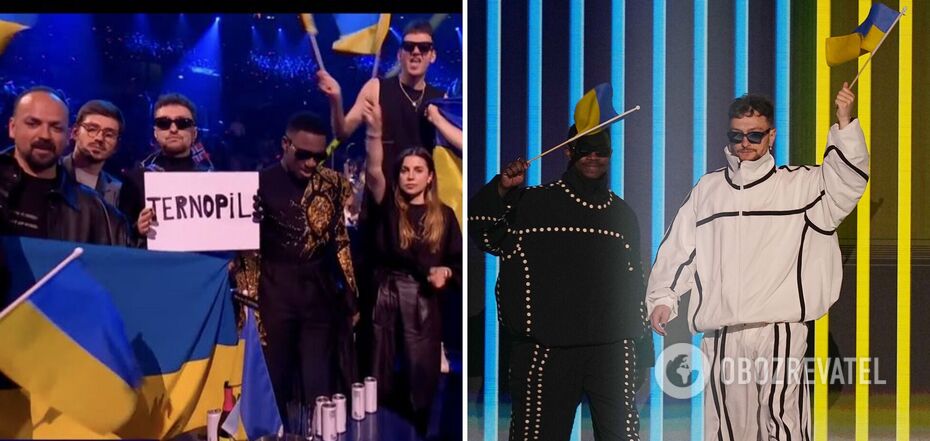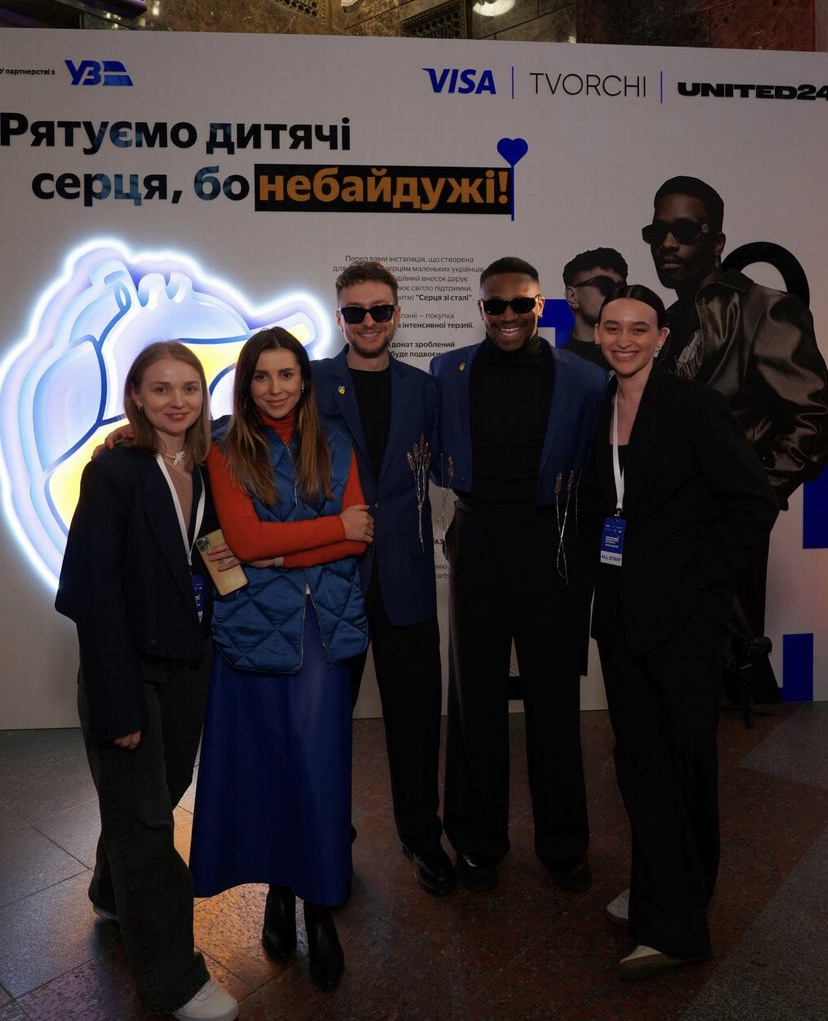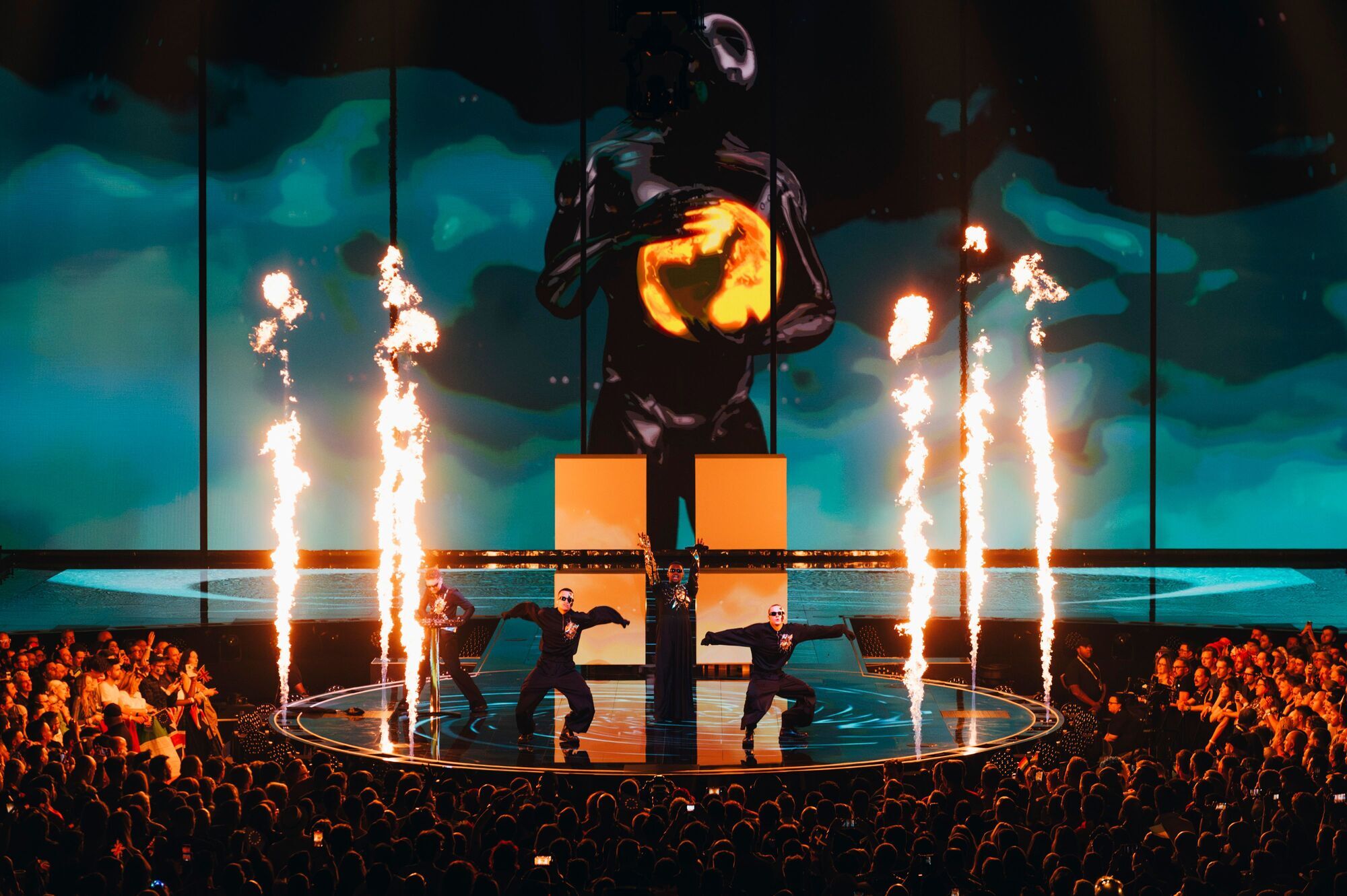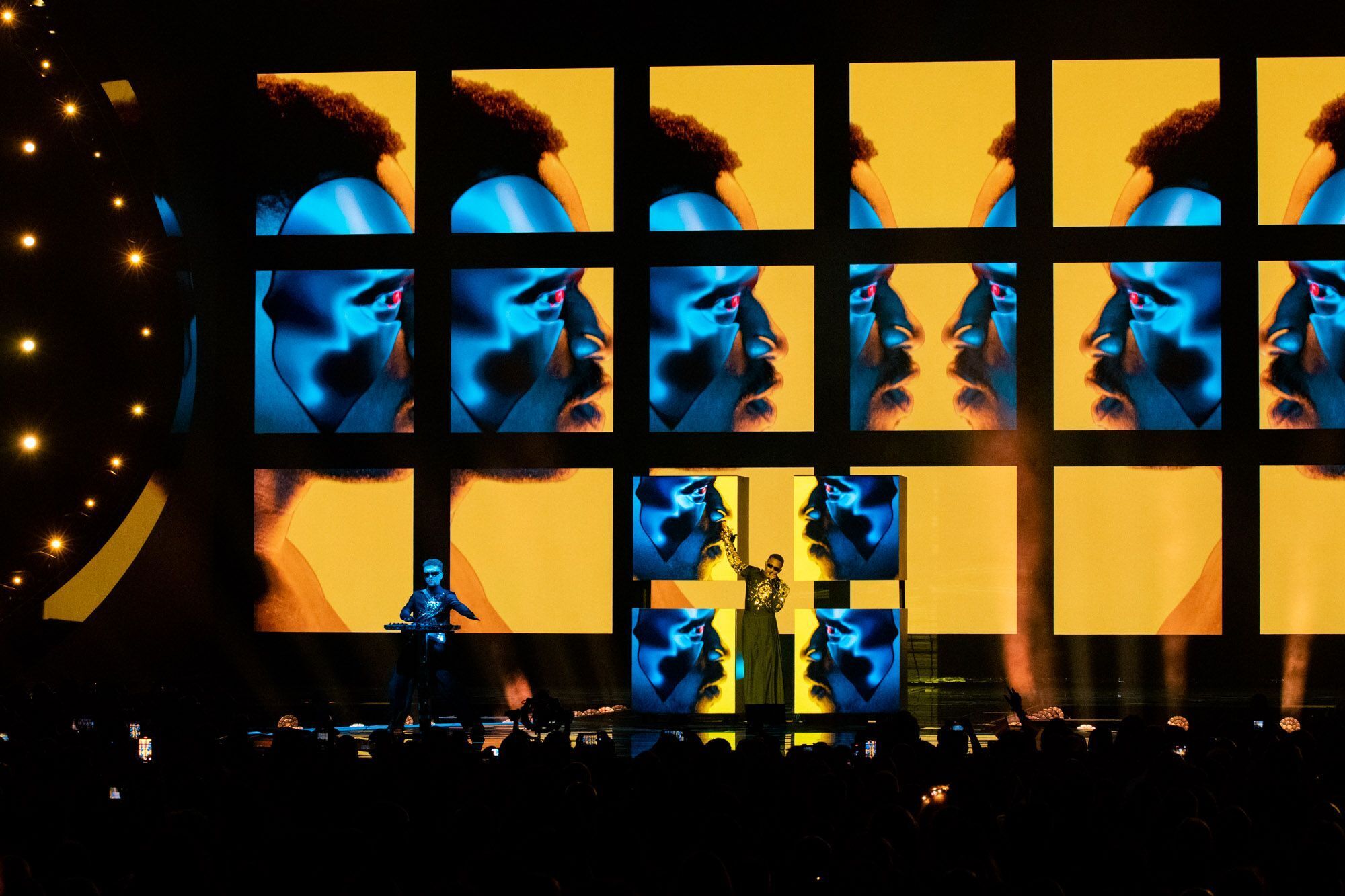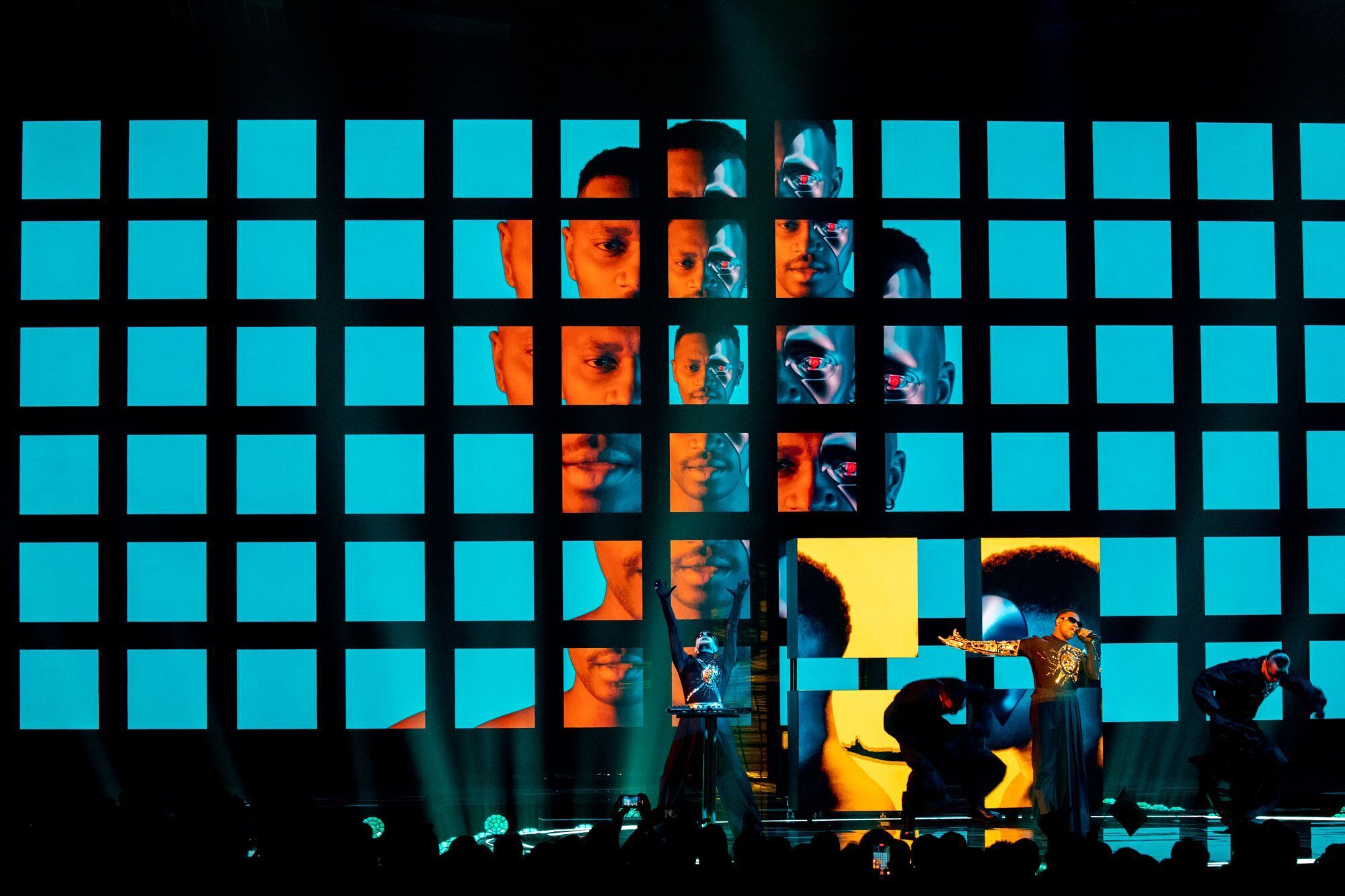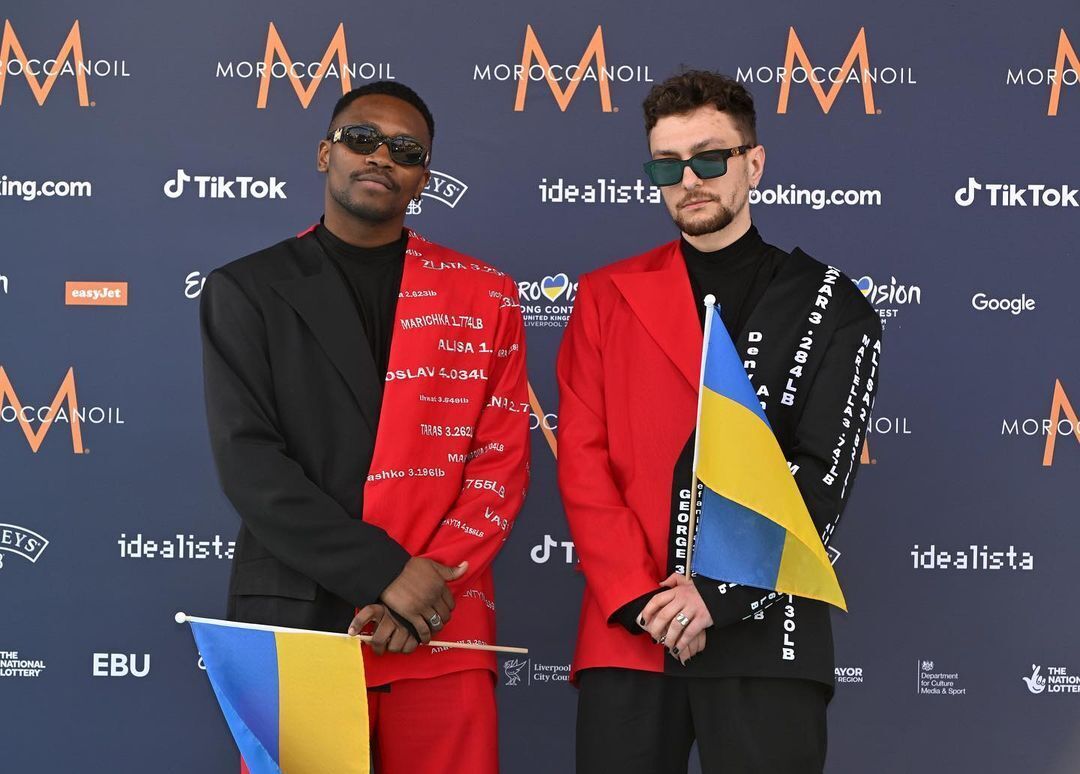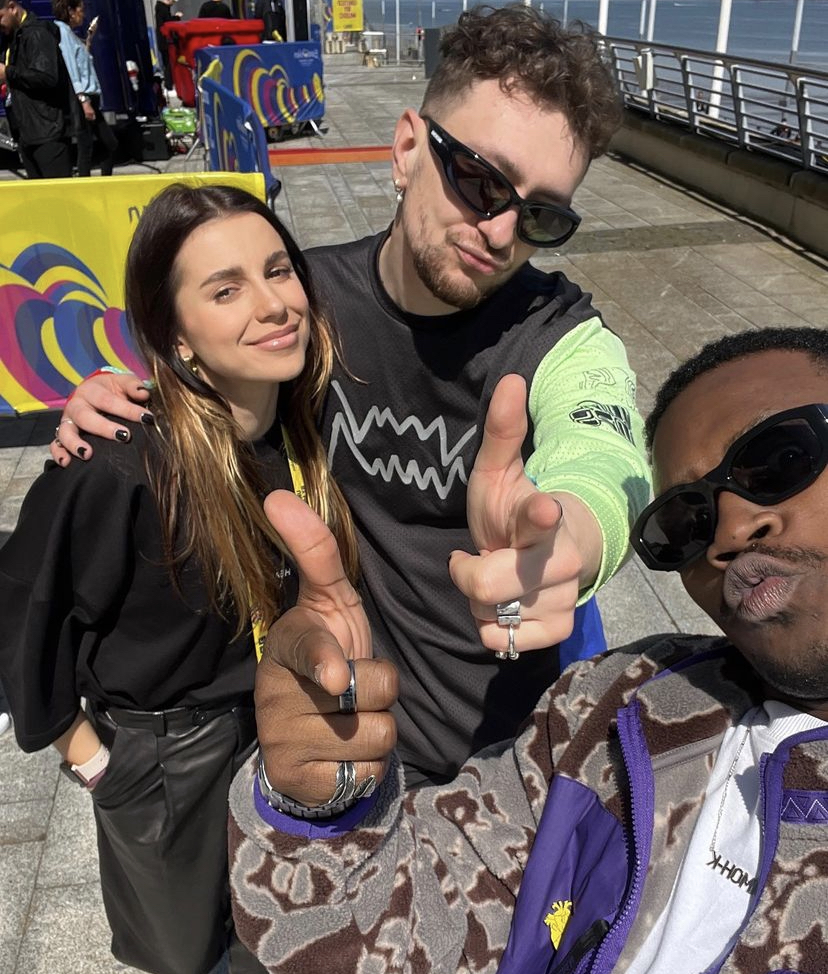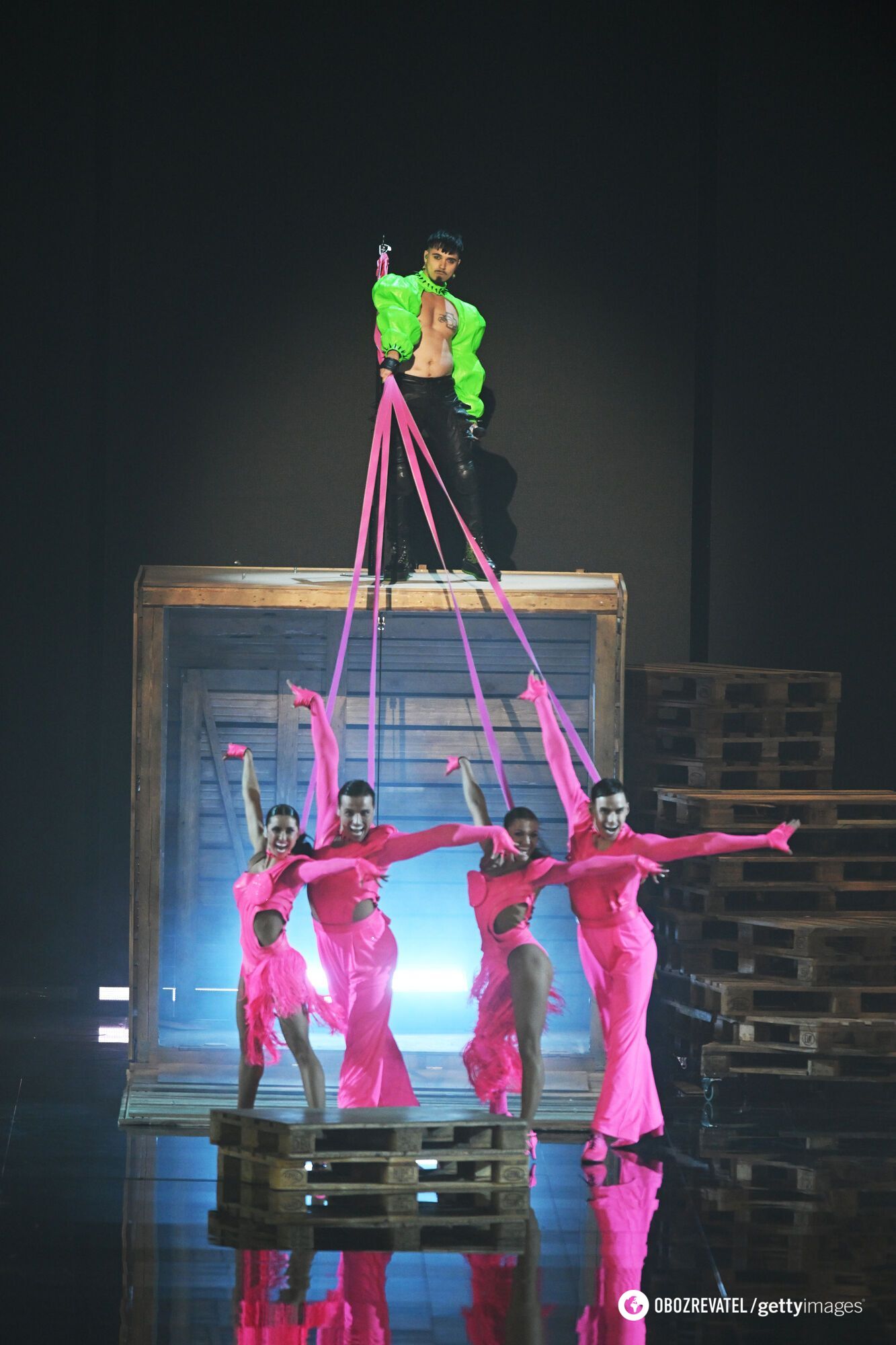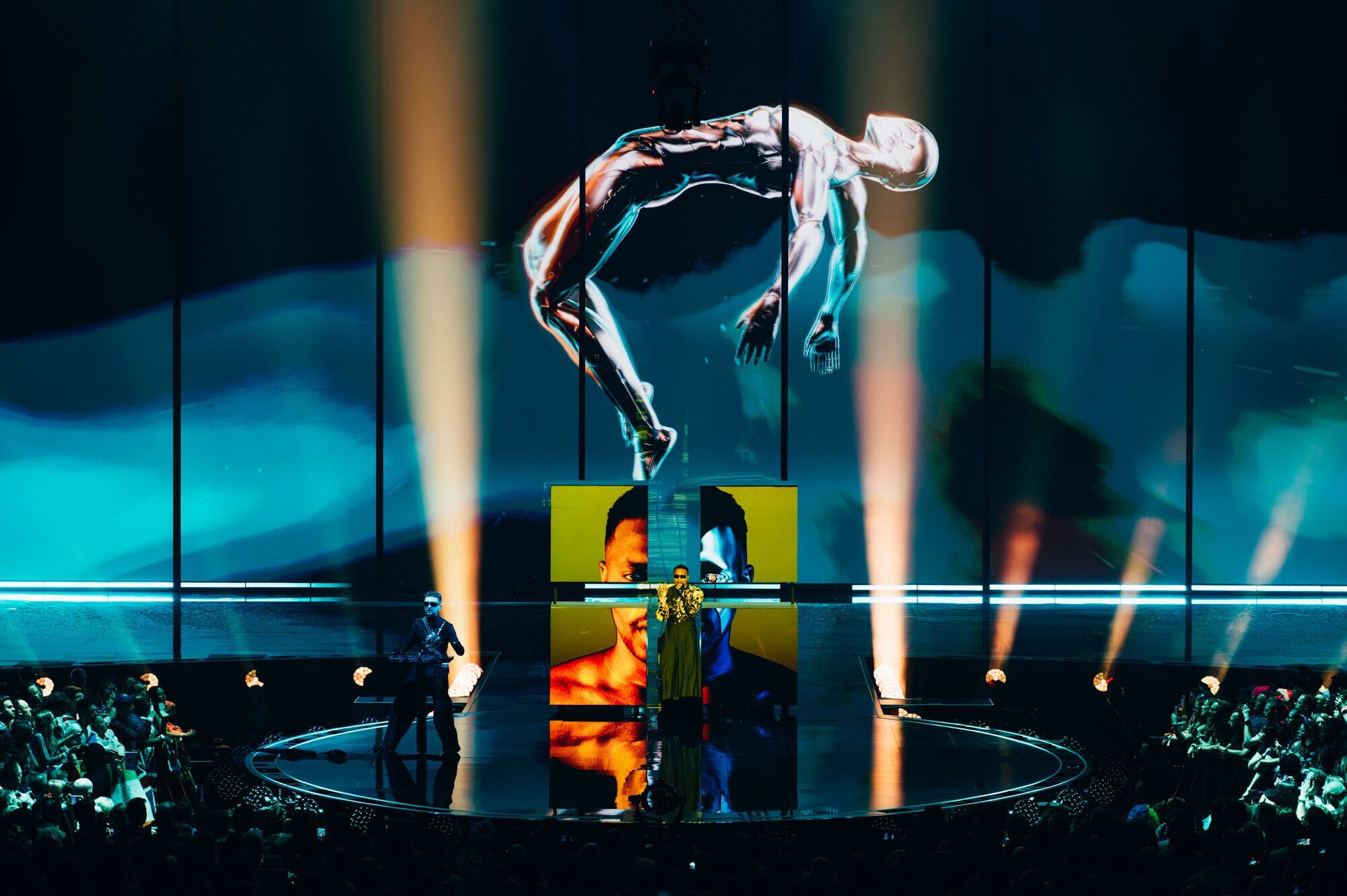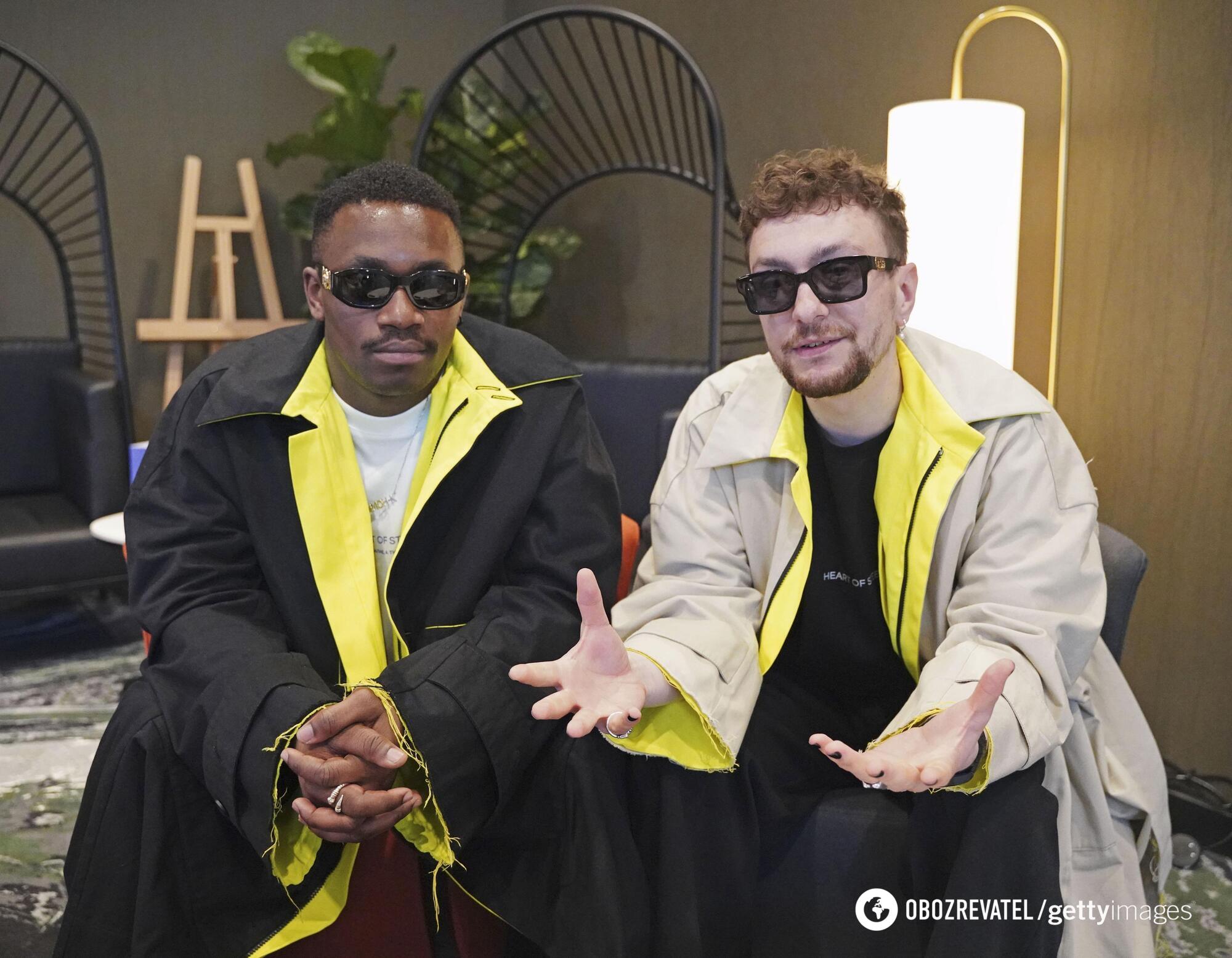Entertainment
"There was a feeling that they were lowering the scores": an interview with TVORCHI's manager about the reaction to the shelling of Ternopil, the silence of the artists and low scores
Right before the Ukrainian band TVORCHI performed in Liverpool at the Eurovision Song Contest 2023, the Russian occupiers shelled their native Ternopil, which shocked not only the artists but also their team. The stars performed on stage with thoughts of Russian terrorism in mind as they learned of the disappointing news a few minutes before going on stage. The musicians' manager, Yulia Mogilyuk, said that they had planned to appeal to the world to unite, but did not do so because of stress.
She also told OBOZREVATEL how the idea to write the Ternopil sign, which was shown to 160 million viewers, came about, what Ukrainians think about the low scores from the national jury, and other interesting details from the backstage of Eurovision 2023. Read more about this in our interview (scroll to the bottom of the page to see the photo).
- When did you find out about the attack on Ternopil: before or after the performance?
"My team and I were sitting on the sofa in the hall watching the concert when news about the shelling of Ternopil started to appear in the public domain. Then my friends started writing that Ternopil was being shelled. It was a shock, because all this time the city had been living relatively calmly and there had been no shelling there. And, of course, we understood that it was directly related to our performance at the Eurovision Song Contest. TVORCHI found out about the shelling about 10 minutes before we went on stage, already at the backstage. You can only imagine the emotions they had when they went on stage. Peter and I (ed. - Petro Zastavnyi, the band's producer) were in a terrible state, because this is our hometown as well."
- What were the guys' thoughts when they went on stage, did you discuss anything together?
"Of course, we discussed it. In general, it was emotions. The guys came to our couch after the performance, very concerned, asking about the news. Until the vote, we were all sitting in public places, monitoring the situation."
- Did the news of the attack prevent you from performing on stage in Liverpool? Who came up with the idea to show the sign?
"Rather, the news added emotion and desperation to the performance itself. The guys went on stage not for the city, but for the country. Our goal was to represent Ukraine and our music with dignity. Before that, we had discussed possible positions in the competition, but at that moment, the competition faded into the background for all of us. It doesn't matter what place you take when your hometown is being bombed.
The idea for the sign came to me spontaneously. We wanted to make a statement about what is happening in our country and support our hometown. There was little airtime after the performance. We knew that we would be shown before the vote, so we quickly wrote the name of the city on a sign we brought from the dressing room. Live broadcasts on such shows are delayed in case of force majeure, and we were worried that the sign would not be shown on air, but everything worked out.
That same evening, all the world's media wrote about the shelling of Ternopil and other Ukrainian cities: BBC, Mirror, Reuters, SkyMedia and many others. Ternopil was trending on Twitter. It was also a sign of support for all the cities that are bombed in Ukraine every day. Not only ours, but also Kherson, Zaporizhzhia, Kharkiv, Dnipro. It is important that Europeans do not forget about the war and do not forget that this is not our choice. Just as it may not be their choice at some point if it is not stopped now."
- Did Jeffrey have anything to say on stage?
"Jeffrey was preparing a short message, but because of the excitement and news of the shelling of Ternopil, he didn't say it. It was about uniting for victory. However, we conveyed our main message through the performance, through the song and the number. It was important for us to tell the world from the stage about the steel hearts and steel will of Ukrainians, so that they would not pity us but take an example from us. The steel man with the planet in his hands is a prototype of every Ukrainian who protects humanity from evil. There is a lot of symbolism in the room, which our director Oleg Bodnarchuk put there. For example, a reference to the famous photo by Dmytro Kozatsky, which depicts a warrior in the sunshine at the blockaded Azovstal. Yellow and blue colours, cyborg people..."
- Tell us about the preparation for the performance. What is Eurovision like on the backing track?
"The Eurovision Song Contest backstage is a huge machine where everything goes smoothly and on schedule. But even such a machine can malfunction, as we could see from our own experience. There were problems with the sound, which we adjusted from rehearsal to rehearsal and still did not get the desired result at the performance. After each rehearsal, we were invited to a separate room where we watched our footage on the screen and made corrections. First on the sound, then on the cameras, the light. There was a countdown timer in the room - the time allocated to each team for discussion. With each rehearsal, this period of time decreased. Accordingly, fewer and fewer changes were made.
We were surprised that the hall was full during the final rehearsals and run-throughs. In fact, these run-throughs were held in the same way as the main concert, only without a live broadcast and voting. Everyone in costume, with make-up, working at full speed, thousands of spectators in the hall. In general, everything was very professional. For every artist, Eurovision is a super-school that takes them up a few levels."
- At the official opening ceremony, the guys walked onto the turquoise carpet in red and black suits with their names on them. What did you want to convey through your costumes?
"The real names and weights of premature babies born during the war, weighing from 700 grams to 1 kg 600 grams, who survived with the help of intensive care incubators, were written on the costumes. Before the trip to Eurovision, we, together with Visa and United24, launched a large fundraising campaign to raise UAH 10 million for such incubators. Going on the track in these costumes was a message within the campaign.
TVORCHI's song is about hearts of steel, and we drew parallels to help little children's hearts beat, as well as to draw the attention of the international media to the war in Ukraine once again. And it worked. Most of the journalists on the red carpet asked what the names and numbers were, and the boys told them. They told us about the conditions in which women in Ukraine are giving birth now, the stress and anxiety they are experiencing. While all the artists walked the track in an hour at most, TVORCHI spent 4 hours on it, talked to all the media who were there, and told about the collection. In two weeks in Liverpool, they gave hundreds of interviews to international media. This was the biggest layer of work. Much more than the preparation for the performance itself."
- Who did the group of Eurovision contestants make friends with the most and who was the winner for you personally?
"We have developed warm relationships with most of the participants. We communicated well with Blanca Paloma from Spain, Mae Mueller from the UK, representatives of Norway, Moldova, Germany, Armenia, Italy. The whole team supported the Finn. He captivated us with his charisma, the audience went crazy every time he cha-cha-cha. And his image, delivery, number, personality - everything was very organic and cool. And he's just as cool off camera as he is on stage."
- TVORCHI's performance was called the most stylish on the network. There were even comments that it was the most stylish performance of Ukraine in the entire history of participation in the competition. How was the number prepared?
"The main preparatory work took place in Kyiv. Rehearsals took place in a separate pavilion, where the size of the stage was recreated and the set was installed. The director had several bold and very effective ideas that we tested in Kyiv, but which did not make it to the stage in Liverpool because they were not approved by Eurovision. Perhaps one day we will be able to implement them at another performance.
We received a lot of positive comments from journalists, people from the organisers, and other artists' teams about our number. There was even a situation when we met the director of the number, Lauryn, who had choreographed two other numbers for other countries in the competition, and she said that our number was her favourite, that she was delighted with the style and visuals. This is all down to the team. In addition, we feel each other. There is synergy, which is very important for a good result."
- What place did you expect to take and how did you react to the jury and audience voting, were you disappointed by the low scores from the judges?
"Our goal was to represent the country with dignity. We understood that no artist had managed to take a high place after the previous winning year, and we were prepared for anything. The main thing was not to let our people down. But, as you can see, we managed to break this tradition, which is very pleasing. Many thanks to all the viewers who voted. Especially to all Ukrainians in different parts of the world.
During the jury's voting, there was a clear feeling that some countries were deliberately giving us low scores to make sure we didn't win again. Poland paid us back in full for last year by not giving us a single point, so now we are 1:1 with them. But we are not offended. The main thing is that they, like others, help us win our main victory.
Earlier, OBOZREVATEL wrote that the winner of Eurovision 2023, Loreen, did not sign the Ukrainian flag at the request of the Ukrainian delegation. Read more about this in our article.
Only verified information is available in our Obozrevatel Telegram channel and Viber. Do not fall for fakes!


